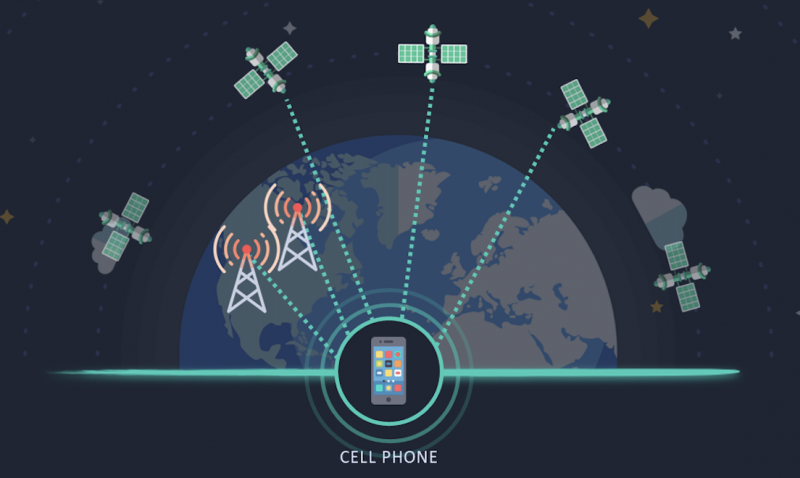FCC Approves Lynk’s Satellite-to-Cell Service

A rendering of Lynk’s satellite-to-cell concept. Photo: Lynk Global
The FCC on Friday approved Lynk Global’s license for satellite direct-to-cell service, approval that will allow Lynk to launch commercial services later this year.
Lynk has six satellites in space with plans to launch three more later this year and and six additional satellites in 2023. Earlier this year, Lynk demonstrated satellite-direct-to-cell connectivity with thousands of mobile and IoT devices in pre-commercial tests and is actively testing in 10 countries.
Lynk’s business model is to work with mobile network operators (MNOs) to operate as a roaming service outside of their networks, and the company has agreements with 15 MNOs in 36 countries, representing over 240 million mobile subscribers. According to the FCC order, the initial satellite network will enable only text message communications in countries where Lynk has MNO partners and regulatory approval.
This approval makes Lynk the first satellite company to commercially offer direct-to-cell service. AST SpaceMobile just launched its test satellite and is still waiting on FCC approval. Apple plans to roll out limited service in the U.S. and Canada in November with Globalstar, and SpaceX signed a partnership with T-Mobile to develop this service for the second generation of Starlink.
“The FCC is the gold standard of telecommunication regulators. They have deep technical knowledge and conducted a rigorous review process, which validates that Lynk’s first-of-its-kind satellite-direct-to-standard-mobile-phone service is ready to be deployed globally.” said Lynk COO Margo Deckard.
To grant the license, the FCC concluded that Lynk’s service will serve the public interest. The FCC responded to interference concerns filed by Iridium, Hughes Network Systems, Inmarsat, Amazon’s Kuiper Systems, and the National Radio Astronomy Observatory (NRAO). Lynk has a number of constraints on its license including that it operate in certain frequencies on a non-interference basis.
In addition, the FCC said that Lynk cannot have exclusive rights to telecommunications via satellite in terrestrial spectrum bands in any country. The commission said this constraint guards against a monopoly or duopoly by Lynk and/or AST SpaceMobile, which has a similar business model but is awaiting FCC approval. This would allow other satellite companies to pursue the same business model of cooperating with MNOs.
The FCC said Lynk’s approval would not address AST SpaceMobile’s application and does not “assume grant of that application.”
“Technologies such as Lynk’s satellite-direct-to-standard-mobile-phone service are an important part of the evolving mobile ecosystem and will be essential in enabling coverage in underserved geographies,” commented Alex Sinclair, CTO of GSMA. “Working in close collaboration with mobile network operators, Lynk’s satellite services will support the goal of ubiquitous connectivity for the benefit of society and business worldwide.”